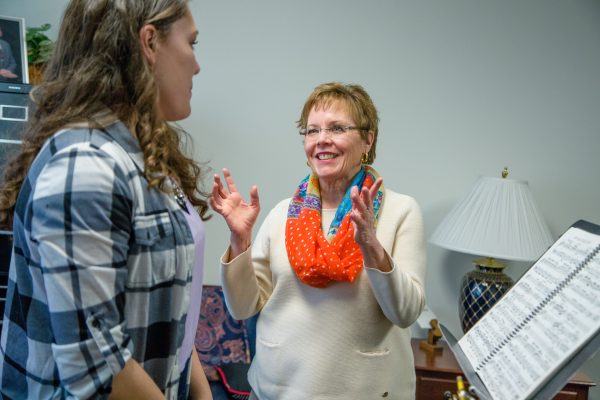What are some things churches can do to help senior members or others with physical disabilities stay involved in the ministry? Also, any advice for families and churches who may have members with dementia who still attend church but may exhibit inappropriate behavior at times?
Ministering to those with physical disabilities and dementia can be very challenging at times, but also very rewarding. When I was preparing a presentation for my church on caring for aging persons with dementia, I stumbled across a passage in Matthew 25 that I began to see in a different view. In verses 35–36, Christ compares the way that we treat our brothers to how we would treat Him. If we examine these verses in light of our brother or sister with dementia, they fit perfectly. There will come a point when the person with dementia will be hungry and need to be fed, thirsty and will need a drink, a stranger in an unfamiliar world around them, naked and need to be clothed, sick and in the prison of this chronic illness.
For me, this was a life-changing way to see my brothers and sisters with dementia! If we keep this principle in the front of our minds, it will change our interactions with those in both physically and cognitively declining health.
Keeping senior members involved in the ministry
I would suggest that churches have a special group for seniors, or those with physical disabilities, in which to be involved. If your church has shepherding groups, assisting those with physical and cognitive needs within these groups is a great way to help meet those members’ needs.
That being said, for one reason or another, these groups will still have those who cannot be as involved or who are unable to be involved at all. Pair these members with able-bodied members in the groups. Also, a phone call or visit a time or two a month will go a long way in supporting these less-active members. When a family has a member with dementia, just having someone who has offered to help when necessary means the world to them.
Secondly, survey those who want to get more involved and ask them what suggestions they have. Try implementing any feasible suggestions. The church’s teen group could also get involved and help meet some needs of these seniors or those with physical disabilities. The teens could adopt a grandparent and benefit both parties involved. The seniors, or those with disabilities, could even help on a regular basis by reading to small children during a Sunday School class. These types of ideas make for win-win situations.
Advice for church members with dementia who exhibit inappropriate behavior
Remember that socially inappropriate behavior is not inappropriate for the disease process. Church members must be understanding and patient because the person with dementia does not remember that the behavior is inappropriate. Since many times dementia causes people to perform repetitive behaviors, they could be given something to do during the service that would be helpful and keep them busy—folding bulletins or washcloths, rolling yarn into balls. Think of a repetitive task that could keep them both busy and not distracting during the service.
I heard a story once about an elderly woman who had dementia that would sit on the men’s laps at church. The church’s solution was to stop the woman from attending the service. Let’s work toward being more creative with our approaches. Maybe provide a special task for the member to perform to function as a distraction from sitting on the men’s laps. Preventing the person from attending the service should be a last resort after all other ideas have been exhausted.
Be creative—that is the most important guideline for working with those who have dementia. What works today may not work tomorrow, and every person is different. And every person is an image-bearer of Christ, even with dementia. We must treat them as such with love and respect as we take the dementia journey with them.
Please send questions, comments and tips on aging or caring for those who are to [email protected].







